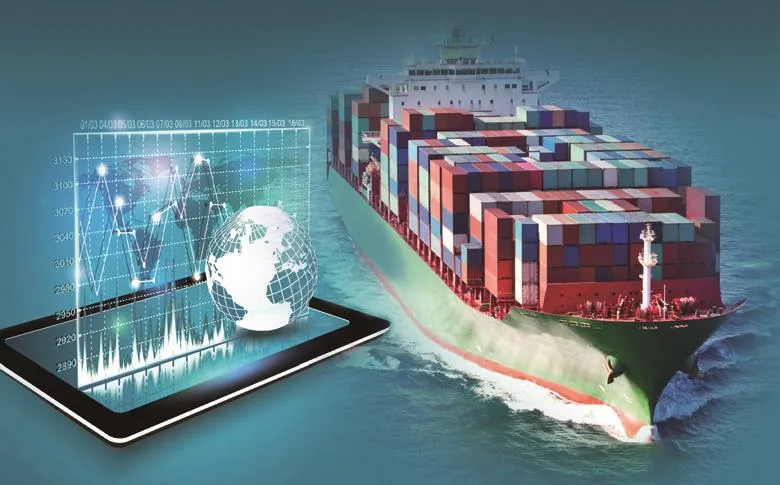“Feeling the pulse”of shipping digitization
2018-03-29ReporterWangSijia
Reporter Wang Sijia
How to define digitalization? What are the major contents of the digitization of the shipping industry? What challenges the digitalization of the shipping industry will face in the process of transformation? The journalist interviewed Zhuang Wei, the General Manager (Digital Shipping Project Consultant) of Asian area of the Baltic and International Maritime Council (BIMCO) with the abovementioned questions, and ask him to “feel the pulse” of the digitization of shipping.

Reporter: Tim Smith, chief executive of Maersk North Asia, once stated that “If you want to survive,you must embrace digitalization.” Do you agree with his view?
Zhuang Wei: Just as Darwin’s theory of evolution,the species finally left on earth are not those that are the largest or the brightest, but those that are the most adaptable to the environment. This is the so-called survival of the fittest. I personally agree with this view.We are in an era of drastic changes, changing or being changed, either for a company, or for an individual.
Reporter: In your opinion, what are the reasons that have made digitization influence business survival?
What should be included in the digitization of the shipping industry?
Zhuang Wei: I think this is the trend of the development of science and technology. It is also the overall endogenous demand of the international shipping industry for green,high-ef fi ciency, economy, and convenience.
Although the international shipping industry is fully aware of digitization as well as its importance, considering there is no uniform standard for digitalization, the industry’s knowledge of its connotation and extension is different.Shipping companies, shipyards, classification societies,equipment manufacturers, and even traders are all making attempts based on their judgment of their own companies’ business characteristics and future trends.Some are currently only based on how to improve energy efficiency, and some are starting from block chain from the perspective of being far-sighted while some others are starting from unmanned ships. All these attempts are good.
Reporter: The digitalization has expanded the audience coverage and it has attracted a group of“outsiders” for the transportation industry, such as Alibaba and IBM. They all are experts in the digital industry. Then, will their participation threaten the traditional players in the shipping industry? What attitudes and minds should we hold to position our relationship with them?
Zhuang Wei: There is no clear de fi nition for “outsiders”in the shipping industry because shipping serves the trade,while trade serves the entire global economy and seeks for humanity well-being. Whether the digitalization of the shipping industry is carried out spontaneously or driven by external forces, it is an objective phenomenon. This is a good thing. We should be open and inclusive and make cautious analysis and should not be conceited or refuse to cooperate. From the evolution history of e-commerce industry in China, it must be “outsiders” who promotes the transformation of traditional industries.
Reporter: With the rapid development of science and technology, the relevant rules and standards on security have been introduced frequently, and the security boundary has been continuously expanded.What impact and challenges has this brought to shipping security? How can we respond?
Zhuang Wei: In order to adapt to the constantly updated maritime rules and shipping conventions, the shipping company's own safety management system must also be updated continuously. The network risk management plan and program of shipping company should supplement ship safety and safety risk management requirements in ISM rules 2 and ISPS rules 3. All personnel including managers onshore and staff on board should be included in the consideration.
Shipping companies should adopt appropriate management procedures to create a safe working environment for the crew after assessing the ship, crew, and onboard environment according to the SMS. In terms of ship operations, network security accidents may not only destroy the structure of the ship, but also cause potential safety or pollution accidents. This means that shipping companies need to take into account the risks that ship's information systems and operating systems may brought and take precautions by establishing appropriate protection measures against network security incidents.
When incorporating network risk management into the shipping company’s safety management system, the shipping company must not only carry out general risk assessments but also speci fi c risk assessment based on the particularity of a particular ship in the fl eet. Factors that should be considered in the assessment process include,but not limited to, the use of information systems and operating systems on board, the complexity of system integration and the nature of operations.
